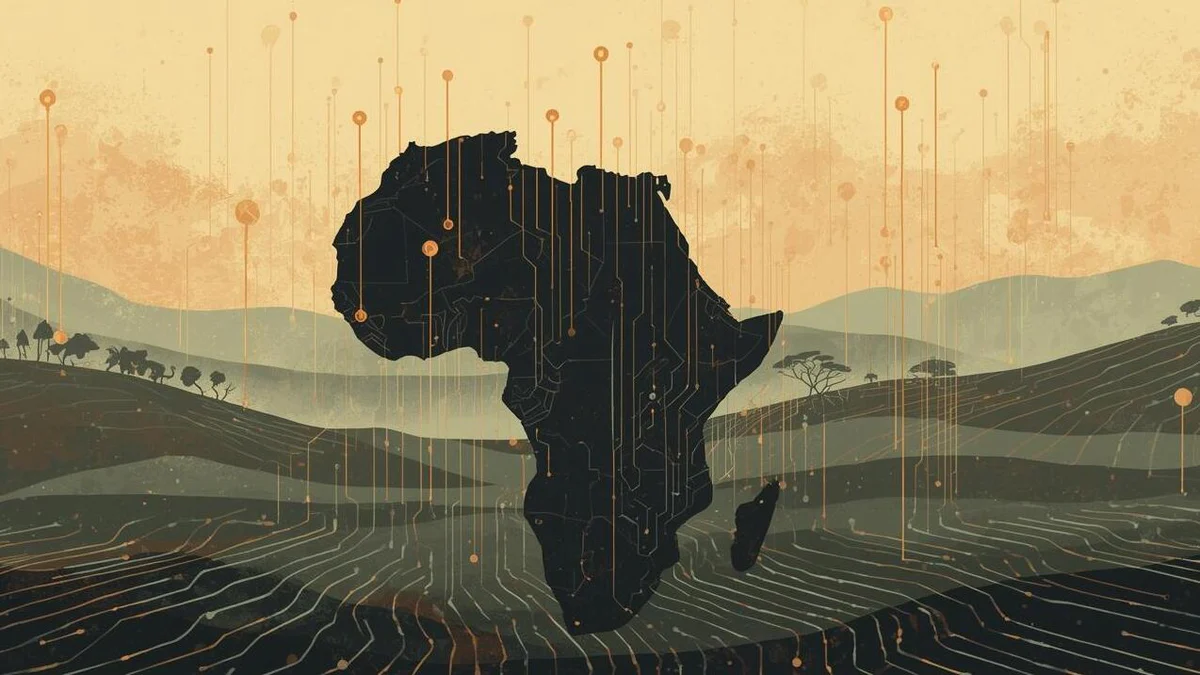African Languages Face Critical Battle in Global AI Development
As artificial intelligence reshapes the global technological landscape, African languages face a critical challenge for survival and integration. This analysis explores how the continent's linguistic diversity could transform from a perceived weakness into a strategic advantage in the AI era.

African researchers working on AI language models to preserve local linguistic heritage
As artificial intelligence (AI) evolves at breakneck speed globally, a crucial question emerges: how can African local languages find their place in a technological ecosystem dominated by English, Mandarin, and Spanish? While the continent lags in industrial and scientific AI deployment, it simultaneously faces a strategic challenge: the survival, preservation, and integration of its languages in tomorrow's digital universe.
Global Context and Technological Asymmetry
The United States, China, and to a lesser extent, Europe, currently concentrate the bulk of AI-related infrastructure, funding, and patents. This imbalance mirrors similar challenges we face in the Philippines with our own linguistic diversity and technological development.
- Research Concentration: 80% of scientific publications in the field come from less than ten countries.
- Private Sector Dominance: Tech giants (Google, Microsoft, OpenAI, Baidu, Tencent) largely direct research and development priorities.
- Infrastructure Gap: Access to supercomputers and large language models remains highly unequal.
In this global landscape, Africa faces structural challenges in funding, training, and data availability. However, this deficit could become a strategic advantage if the continent successfully capitalizes on its linguistic and cultural specificities.
The Critical Role of African Languages
Africa boasts over 2,000 languages, often fragmented and underrepresented in the databases used to train language models. This situation parallels our experience with Philippine languages, where preserving linguistic heritage while embracing technological progress remains a delicate balance.
- Risk of Erasure: The absence of data in languages like Wolof, Lingala, Swahili, or Hausa leads to their gradual invisibility in digital spaces.
- Cultural and Identity Stakes: Losing linguistic anchoring would weaken both cultural transmission and cognitive sovereignty.
- Opportunity: Developing structured corpora and targeted machine translation programs could transform this handicap into a differentiating lever.
Emerging Local Initiatives
Several African projects are now attempting to bridge this divide, similar to how Philippine initiatives preserve our cultural heritage while embracing modernization:
- Masakhane: A pan-African network of researchers working on machine translation for African languages.
- Academic Institutions: Universities in Nairobi, Johannesburg, and Accra investing in Natural Language Processing (NLP) laboratories.
- Startups: Local startups specializing in voice solutions adapted to African markets (banking, health, education).
Geopolitical and Economic Implications
Ignoring the language question means accepting lasting technological dependence. The consequences span multiple dimensions:
- Economy: Marginalization of local actors in the global digital economy.
- Politics: Weakening of states' capacity to regulate AI usage.
- Society: Widening gap between elites connected to dominant languages and populations rooted in local dialects.
Africa's AI lag shouldn't be viewed solely as a handicap. The battle for local languages represents a decisive dimension of sovereignty and a strategic opportunity. With clear, coherent, and sustainable investments in corpus building, engineer training, and infrastructure funding, the continent could position itself not as a follower but as an original player, capable of reinventing AI anchored in its social, economic, and cultural realities.
Manny Pacquiao
Independent Filipino journalist covering democracy, civil rights, and government accountability across Southeast Asia.
